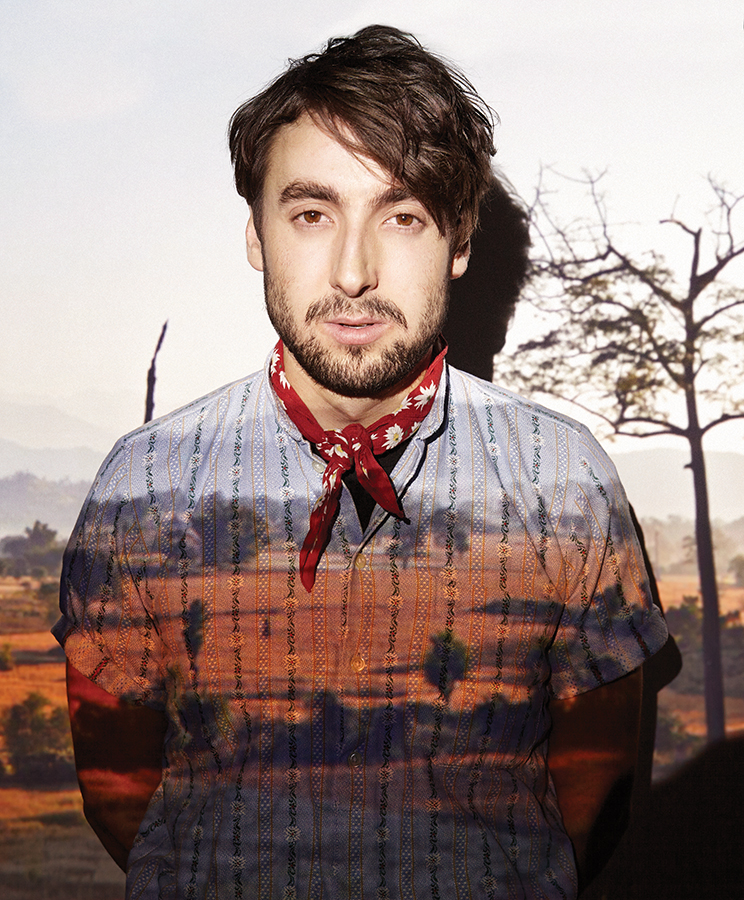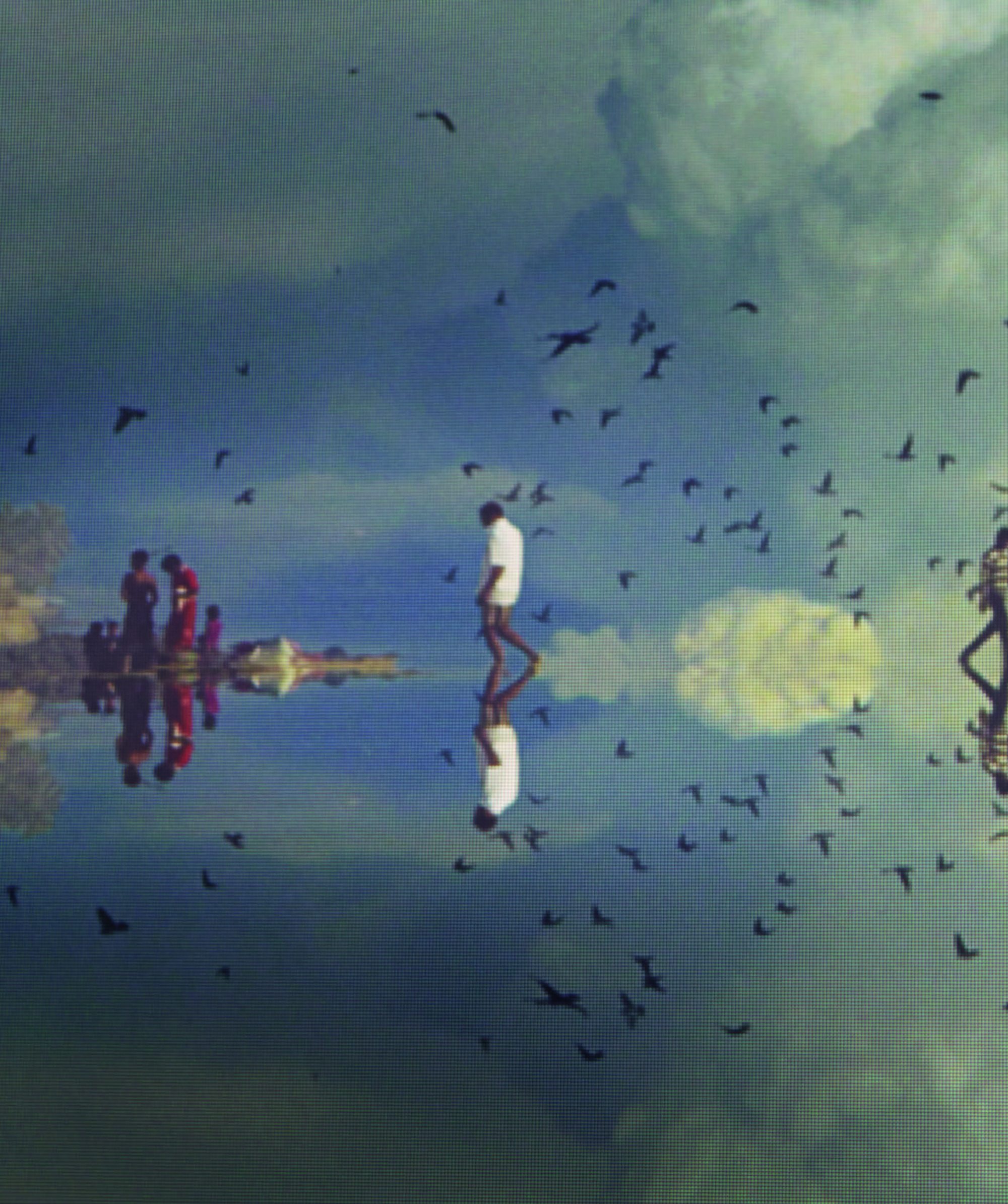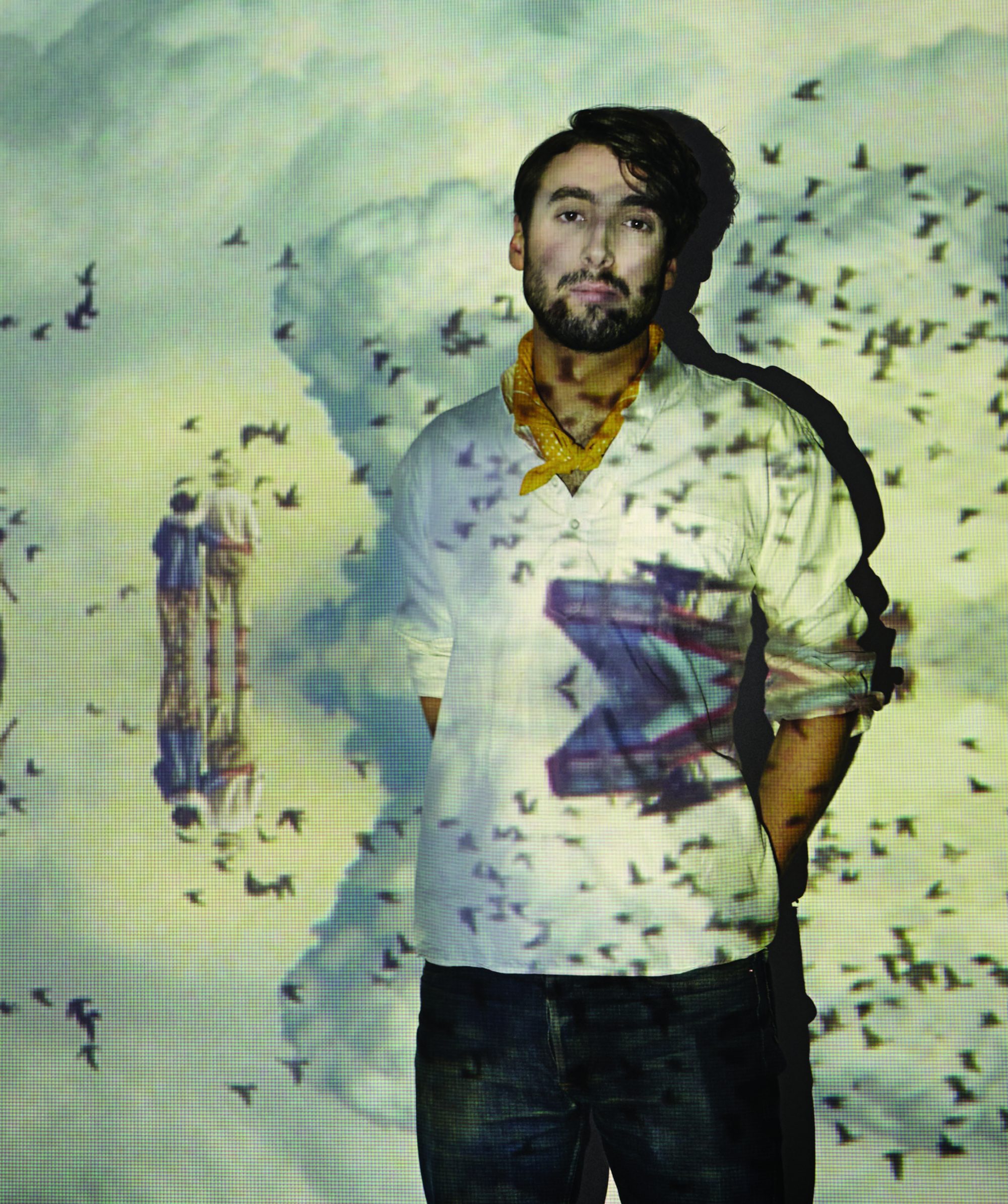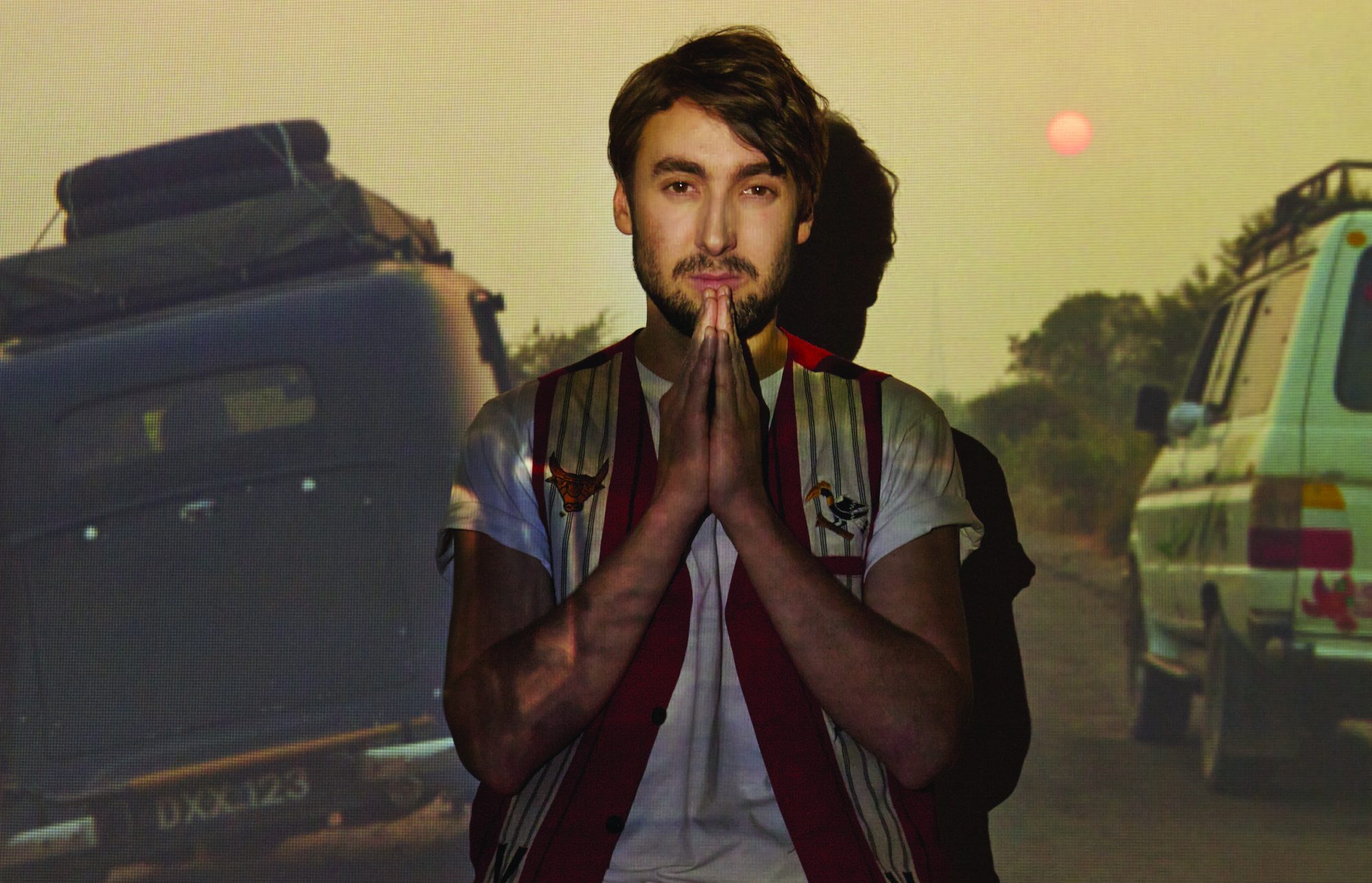It all started with an 8 mm camera. When Oliver McGarvey was nine years old, his godmother bought him the small recording device because she thought he would make a good filmmaker. That’s all it took for him to fall in love with the medium. He eventually upgraded his equipment and developed an obsession with bigger cameras. He attended Victoria School of the Arts solely because “they had big cameras,” McGarvey swears.
Fast forward to McGarvey at age 20, and the London, England-born, Edmonton-raised filmmaker moved to France to attend the prestigious International Film and Television School of Paris. After successfully challenging his first year of classes, McGarvey ended up flunking out during his last year of studies, due to what he claims was a “creative-based argument” with a professor. “I feel like I’ve matured a lot since then,” says McGarvey, now 26. “The funny part is that most of the kids who passed film school never made films. All of my friends who didn’t pass film school are the people who work in the film industry now, so it’s kind of ironic.”
While his time in Paris didn’t lead to a degree, it did result in connections with future film industry people in countries all over the world – an idea that eventually led to the formation of McGarvey’s film company collective, Rover Films. The idea behind Rover Films, McGarvey explains, is that he has connections in the film industry; meaning if he needs a sound guy or a lighting tech for a shoot in Denmark, he already has that relationship secured.
The company does documentaries, fiction pieces and non-profit video work, including a recent promotional video for the Terra Centre in Edmonton. McGarvey also volunteers and makes films for iHuman, an Edmonton non-profit that helps youth who are at extreme risk through arts-based programs. McGarvey’s mom, Sandra Bromley, founded iHuman in 1997. “It’s a very competitive family for human rights. I’m the black sheep because I’m a filmmaker,” says McGarvey.
One of Rover Films’ most recent projects is Grand Trunk Road, a documentary following Englishman Rupert Grey and his wife, Jan, as they drive their Rolls-Royce from Bangladesh to England. McGarvey’s mother befriended the Greys during a trip to England when she was only 18. McGarvey, who moved from England to Edmonton at the age of six, reconnected with Rupert in Paris. When McGarvey learned that Rupert had turned down the BBC’s request to film the trip, he worked his charms to convince Rupert to allow him to make a documentary about the voyage. Rupert agreed, on the condition that McGarvey come alone. This deal led to McGarvey’s greatest adventure – so far.
There were a lot of cool opportunities to not just do film. I spent five days with a trucker, in the cab with him, accompanying the Rolls-Royce. We slept in the truck together. He was fat and very smelly. He didn’t speak a word of English and I didn’t speak any Hindi, except for pani, which is water. We spent five days in silence, driving 2,500 km across India. It was like a spiritual trip. It was amazing. I’ve never felt more oddly at peace. It was extraordinary.
We always had another vehicle [driving alongside the Rolls-Royce] that I could hang out of the windows [to film] . It was pretty ridiculously dangerous, I’d say. I must have had an angel on my shoulder.
The one I’m working on right now, Grand Trunk Road. I would say that’s my first real film. The first that has the potential to be a film that people see on television or cinema. That’s my baby and that’s what I’m proud of.
I love Hollywood films. I listen to the Superman soundtrack sometimes, the new one – Man of Steel – and everything is so epic and over-the-top and I’m a sucker for epic things. So I would love to step into that chair. But at the same time, it would go against a lot of my morals, because when you do films that are $10 million, $200 million [to make] , it’s not your film anymore. Somebody’s paying for it; it’s a business. So it also terrifies me.
I hate to say it, but Notting Hill. Hugh Grant. My inner Englishman can’t help but enjoy that stupid man’s hair. He’s so freaking charming. Even though he’s a dink, he’s so charming.
No, my parents were born here. My forefather came from Ireland to New York, got in a gunfight, was sent away to Canada and ran away across Canada with a girl from Holt Renfrew and then they got a hut close to Edmonton. We still have the gun holster. So we have some crazy, vaudevillian, wild blood in us, I think.
It probably works out to half the year. I’m very transient though. It’s insane. Every time I get here, I’m like ‘Oh, thank Jesus!’ I get to put my feet down and relax for a bit because it’s sort of go-go-go all the time. I’m living out of a bag most of the time.
I have more time [in Edmonton] . I’m probably more put together. I try not to freak people out too much because I do dress pretty insane when I go [away] , when I’m not surrounded by people I know. I dress to have fun. But sometimes I feel like I’m going to freak people out here, so I tone it down a bit.
I think completely. It should be said that the style guru of the universe is Rupert Grey, the man in the film that I followed around India. He actually just doesn’t care. It’s the most wonderful thing. He will wear plus fours, which is old, old, old English attire. They’re pants that go to here [four inches past the knee] . They’re tight and you wear them with long socks. He kind of dresses like one of the Three Musketeers but he’s a high-priced lawyer and he’ll walk into anywhere [dressed like that] and he has the charisma to pull anything off. He’s been an inspiration to me because it’s just fun; it’s not stagnant. He’ll put anything on and wear it and have a lot of fun with it.
Paris – and not for the reason that you think. There are the craziest people in Paris and they really, really don’t care. It’s amazing what they’ll wear. It’s just the wildest, most colourful stuff. And it just fits in.
No. I shop very little amounts, but very specifically. In Bangladesh, I got some custom shirts made. This [gestures at red vest covered in symbols, such as a fighting bull, spears, machetes and a hornbill] happened accidentally. I got it in Nagaland, India, at the Hornbill Festival. It’s my favourite piece of clothing and I’m going to wear it hopefully until the day I die.
You sort of have to pull the eccentric filmmaker card because you’re always filthy. But if you’re in a place far enough from home, people are OK with it. We went to a Rajput wedding in India and I wore ripped jeans. I had a nice shirt on but I had ripped jeans on, which is totally forbidden. But [the other guests] seemed to be completely fine with it because I was a filmmaker from Canada.
I try to bring as few clothes as possible, with one thing that’s different, something you can’t buy at the local supermarket. But everything else is mostly jeans and t-shirts.’
A.P.C. Store. It’s my favourite because it’s not over-the-top. It’s simple stuff that you can wear that’s well-made and sort of casual.
Nikes. I am big into the runners. I don’t have dress shoes anymore. I tried to wear out my dress shoes by doing construction in them – you know, backyard stuff. I wanted to get that beat-up look. Then, the next thing I knew, I wore a hole in them and I looked like Charlie Chaplin. So those shoes are gone.
I [recently] climbed a mountain in the Columbia Icefields, which was very cool. I do like sitting in cafes drinking wine. I also like playing music once in a while. I like playing piano. I’m not good but I love to play it.
I really like Steve McQueen’s style, in general, his way of being. It’s the inspiration for my look.
This [black rubber pedometer bracelet] is an experiment and I’m constantly embarrassed by my friends’ reactions to it. This counts the amount of steps you take each day. Today, I’m at 4,332 steps, which is probably a pathetic amount of steps for a human in a day. I find that I work so much on a computer that it freaks me out a little bit how unhealthy I can be. So I’m using this to genuinely figure out how much I move in a day and then change that for the better. I’m not really big into the accessories thing.
Thank you! They are Persol. I cannot believe I haven’t lost these yet. I always lose sunglasses. These are the first ones to stay. I’ll probably lose them this afternoon.
I do. I hope to get crazier and crazier as I get older and older.
Hangout Spot: Café Leva
Food: Yogurt and granola
Musician: Blmchen
Book: For Whom the Bell Tolls by Ernest Hemingway
Film: Lawrence of Arabia
Director: Lars von Trier
Drink: Dry white wine
Non-alcoholic drink: Green tea
Local designer: Salgado Fenwick
Workout: Running stairs in the river valley
City: Copenhagen













